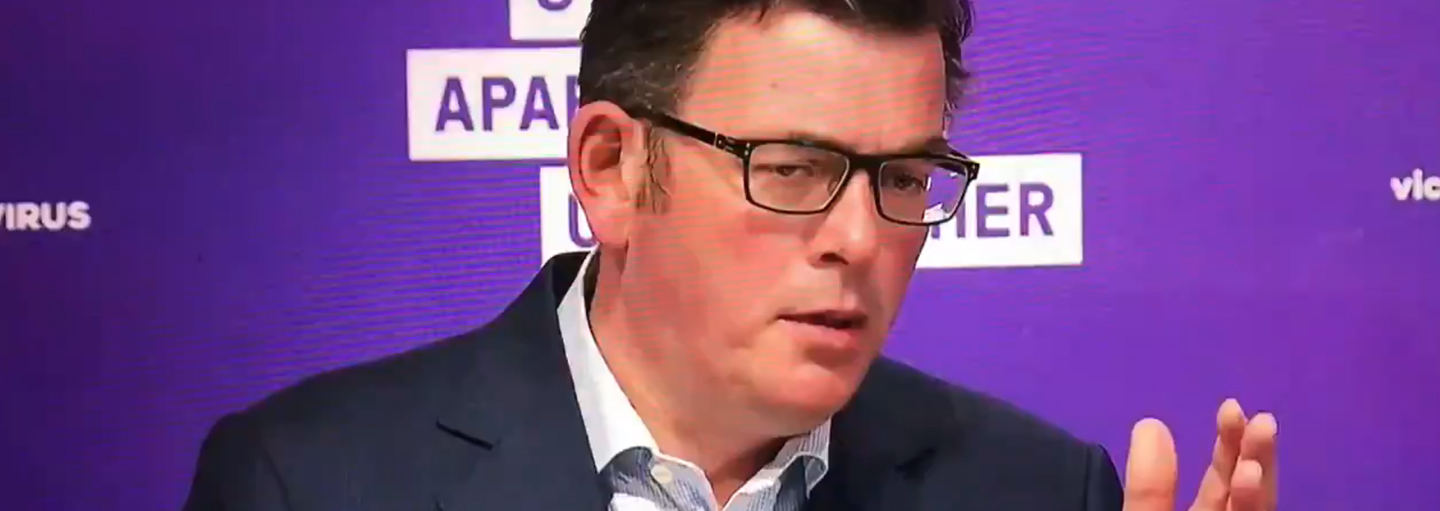Victorian Premier Daniel Andrews has said his government is considering the use of electronic devices to monitor people’s vital signs and location as an alternative to hotel quarantine.
During a recent press conference, the Premier said without a vaccine, quarantining every returning traveller for 14 days throughout the entirety of 2021 may not be the government’s policy, so alternative options are under consideration.
“One of those options might be to say to people — and other countries in the world are doing this — ‘Here is an electronic device that means we can be certain about where you are,'” Andrews said.
“But there is some technology that can also monitor your vital signs as well, so it becomes something that not just to ensure you stay where you’re supposed to stay, it’s also a way in which we can monitor whether you’re healthy or otherwise.”
Victorian Premier considers tagging people with electronic devices to monitor their location and vital signs.
— Caldron Pool (@CaldronPool) October 20, 2020
pic.twitter.com/DL5CMII2Xh
In May, the Premier urged the public to download the government’s C0VIDSaff app to make it “easier” for authorities to “track” people and make sure they’re taking care of their health.
“If you want to get back to restaurants and cafes and pubs, then download the app. I’ve done it. Everyone on stage here has done it. It makes sense. It’s just one more tool that’ll make it a little bit easier – never easy – but a little bit easier for our 1,000-strong c0ronavirus detective squad to track you, to trace you, and to make sure that you’re doing the right thing by your health and the health of who you love the most.”
Under Victorian legislation, authorities are granted the powers to detain anyone they suspect of being “high risk” or likely to negligently spread C0VID-19, either if they have the virus or have been in contact with an infected person.
The Omnibus (Emergency Measures) Bill states, for the purpose of detaining a person under Section 200, which is the period reasonably necessary to eliminate serious risk to public health, and an officer must believe the person:
“(ii) is likely to refuse or fail to comply with the direction; and the reference in section 200(6) to whether the continued detention of the person is reasonably necessary to eliminate a serious risk to public health is taken to be a reference to whether the continued detention of the person is reasonably necessary because a designated authorised officer reasonably believes that the person— (i) is a high risk person; and (ii) is likely to refuse or fail to comply with the direction.”
According to The Age, a state government spokesman said the rule could be applied to “conspiracy theorists who refuse to self-isolate or severely drug-affected or mentally impaired people who do not have the capacity to quarantine.”
Furthermore, at the direction of health officer Brett Sutton, authorities in Victoria can enter any home without a warrant or the home owner’s permission and take any action they deem necessary to slow the spread of cor0navirus.
According to The Guardian: “The state of disaster declaration will empower the police minister, Lisa Neville, to appoint police as authorised officers. This means when doing spot checks on people’s homes, if the residents did not give permission for them to enter, police will be authorised to enter without a warrant.”
ABC News reports: “At the direction of Professor Sutton, health authorities can detain people, search premises without a warrant and force people or areas into lockdown if it is considered necessary to protect public health.”
The Public Health and Wellbeing Act 2008 states that authorities can, close any premises, and “direct a person or group of persons to enter, not to enter, to remain at, or to leave, any particular premises for the period of time reasonably necessary to investigate, eliminate or reduce the risk to public health.”
Authorities may also, “without a warrant, enter any premises and search for and seize anything that is necessary for the purpose of investigating, eliminating or reducing the risk to public health.”
Powers may also be granted to “direct any person to take any other action that the authorised officer considers necessary to eliminate or reduce the risk to public health.”





















